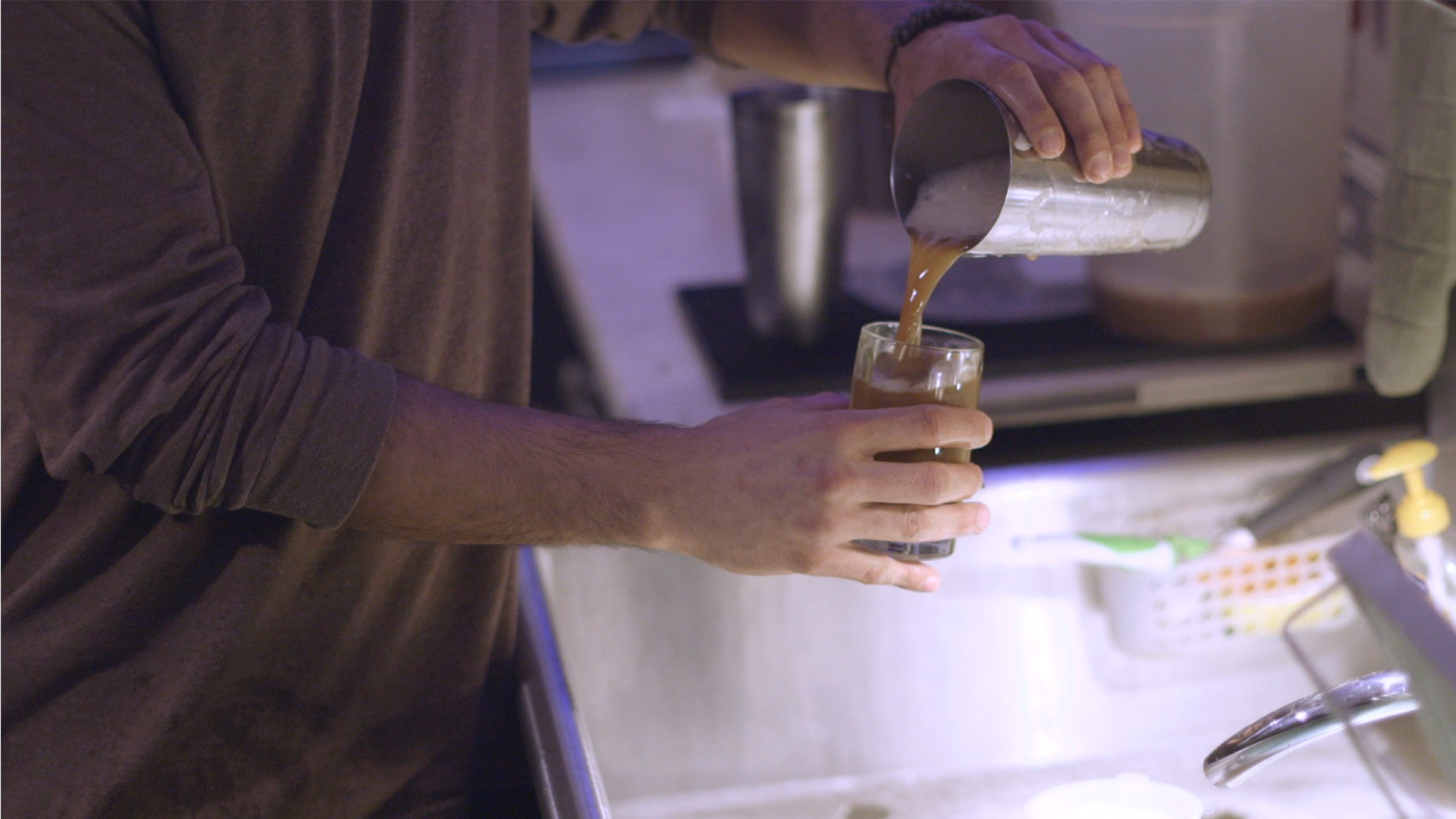Farmer Images / WIN-Initiative / Getty
When I dropped acid in a garden in Berkeley in summer 2016, the word “hypnaldoozy” popped into my head, accompanied by a mental image of my younger self holding a hot dog. Two months later, after taking magic mushrooms at a park in Germany, “hypnaldoozy” came back, joined by a friend, “shmeergaldizey.” These were part of a whole family of words that also included “gaucious,” “snoopledog,” and “rumplestiltue.” It felt as if these nonsense words were onomatopoeias, inherently suited to the things they described. These were not auditory hallucinations but vivid thoughts, like songs stuck in my head.Curious if I was the only one to make up nonsensical words on psychedelics, I asked around and learned that one of my friends got “skrim” on acid and another got “worry children” on shrooms. Online forums document one LSD user getting "a jumbled mish-mash of boing-boing” and another getting “shnanny” yelled by his mom’s head on a rooster.Thinking up nonsense words, as absurd as it seems, is a common effect of psychedelics, says James Giordano, professor of neurology and biochemistry at Georgetown University Medical Center. Alliterative words, onomatopoeic words, and other strings of words with musical qualities are common both to speak out loud and to hear in your head when you’re tripping.The property of psychedelics that explains most of these experiences is their disinhibitory effect. Normally, we have a ton of sensory input coming in, from the imagery particular words evoke to the feeling of our clothes against us, but our brains inhibit our awareness of it. “The way your brain works is like a filter,” Giordano says. “When you dial in one station, you're not dialing that station in as much as you’re dialing every other station out. If your brain didn't do that, it would be a very noisy place—visual images popping up, hearing words and sounds, feeling all the little things happening in and to your body—you'd see and hear all your own thoughts. Under the influence of a psychedelic, those things can become very evident and apparent and often distorted.” While this sounds slightly similar to what the public’s idea of what schizophrenia is like, Giordano tells me it’s not actually the same mechanism.
More from Tonic:
The disinhibition of all this sensory processing happens through psychedelics’ effect on the serotonergic system, which sends pathways to the vision-processing occipital cortex in the back of the brain and the language-processing temporal and posterior frontal cortical areas, Giordano explains. In other words, our brains normally restrict the interactions between these two centers, but on psychedelics, they interact more freely and loosely. As a result, some LSD and mushroom users report seeing the letters of the words someone’s speaking or an image of something they’re describing in front of their eyes, says Giordano. Conversely, certain things they see may conjure up sounds.This is something people do, to a more moderate extent, when they’re not high. Giordano compares it to when you’re a child naming your fish, and for whatever reason, “bobble” seems appropriate—or when you meet someone and think, “He looks like a Henry.” Our visual and verbal centers are constantly communicating in seemingly nonsensical ways. Psychedelics just give us a vivid glimpse into this process.Read This Next: This Is What It's Like to Have Sex on Shrooms
Advertisement
Advertisement
More from Tonic:

The disinhibition of all this sensory processing happens through psychedelics’ effect on the serotonergic system, which sends pathways to the vision-processing occipital cortex in the back of the brain and the language-processing temporal and posterior frontal cortical areas, Giordano explains. In other words, our brains normally restrict the interactions between these two centers, but on psychedelics, they interact more freely and loosely. As a result, some LSD and mushroom users report seeing the letters of the words someone’s speaking or an image of something they’re describing in front of their eyes, says Giordano. Conversely, certain things they see may conjure up sounds.This is something people do, to a more moderate extent, when they’re not high. Giordano compares it to when you’re a child naming your fish, and for whatever reason, “bobble” seems appropriate—or when you meet someone and think, “He looks like a Henry.” Our visual and verbal centers are constantly communicating in seemingly nonsensical ways. Psychedelics just give us a vivid glimpse into this process.Read This Next: This Is What It's Like to Have Sex on Shrooms
